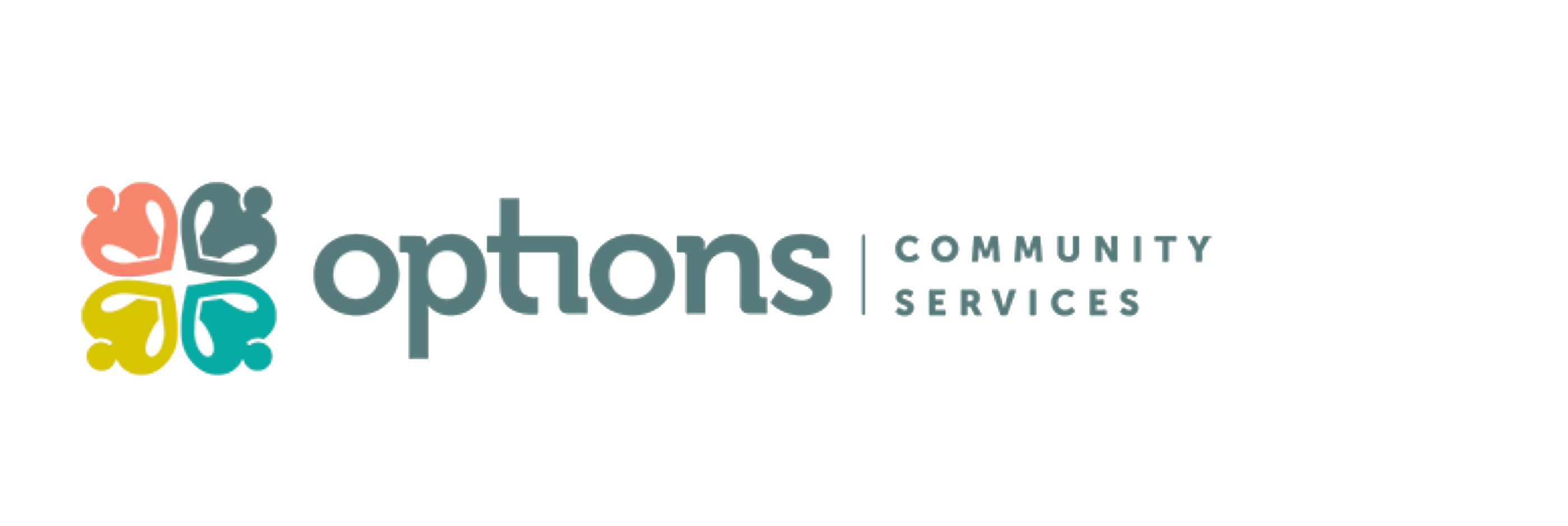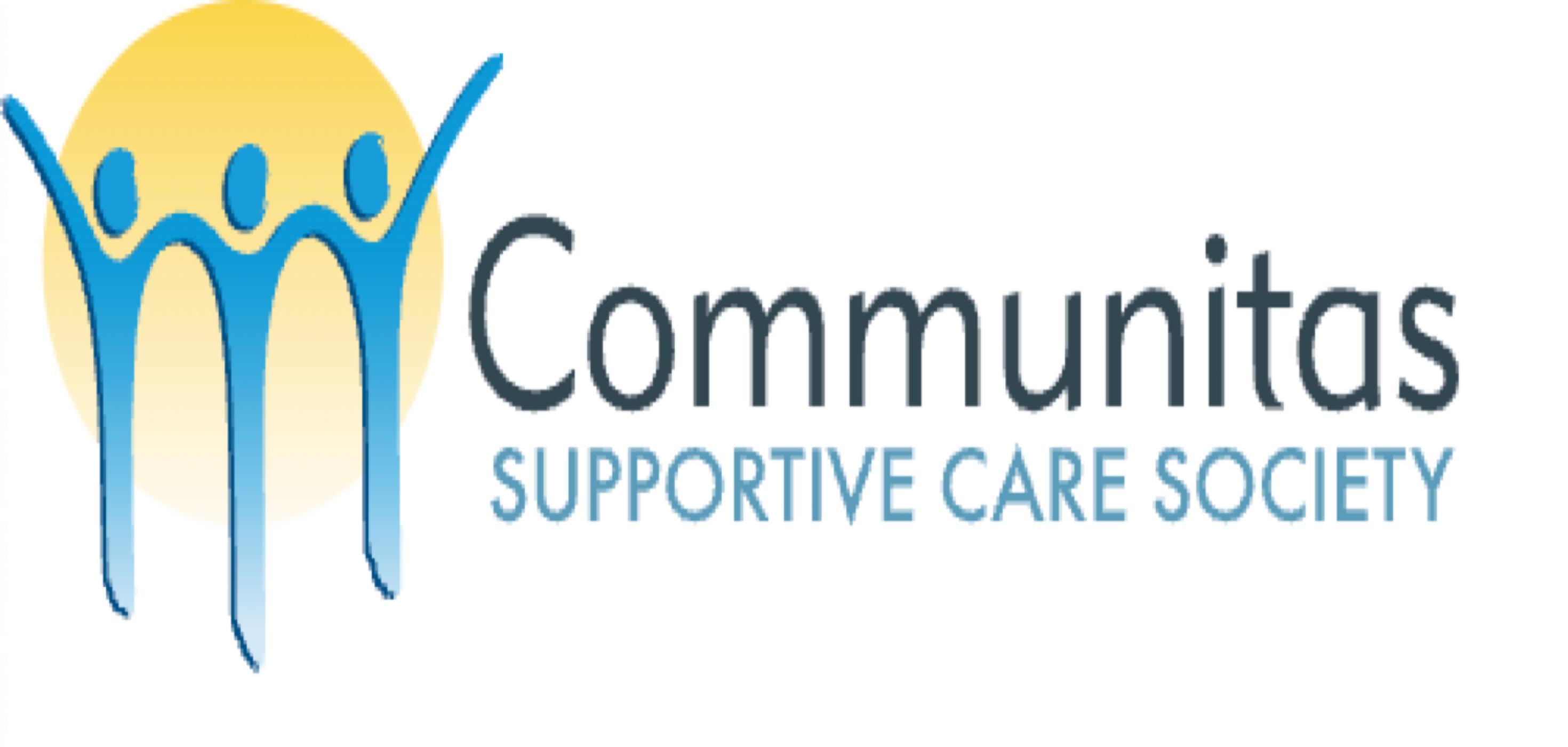PSR RPS Canada
-
👋 Welcome to PSR RPS Canada's portal!
❓ Access our Portal User Guide for help!
🤩 Purchase a membership
- Scroll down 👇 to the Available resources and click on your preferred membership option, with or without journal access. You will be prompted to submit payment.
- If you are a member of an organization that has purchased a membership for you, please navigate to your My Resources tab (located in the main navigation menu across the top of the page) and locate your organization. Your membership certificate will be available there.
🎓 Apply for CPRRP designation
- If you have a PSR Canada membership, scroll down 👇 to the Available resources section to purchase your CPRRP designation application.
🏫 Browse our extensive Resource Library*
*You must purchase a membership before accessing the Resource Library.
Site announcements
Available resources

Available for purchase by individuals interested in becoming members and considering applying for the Certified Psychosocial Rehabilitation Recovery Practitioner (CPRRP) until March 31, 2025.
PSR Canada is a grassroots, non-profit charitable organization. We provide a community of practice for individuals and organizations who want access and knowledge exchange opportunities on evidence-based PSR recovery-oriented practices.
If access to our extensive library of resources is required for an organization, we ask that the organization obtain an organizational membership. Currently, we allow an unlimited number of personal accounts to be assigned within an organizational membership.
PSR Canada’s operations are largely volunteer-based. To continue providing benefits to members and sustaining our community of practice, certain requirements must be met for individual memberships:
- Individual Memberships: Exclusively for the person who holds the membership.
- Non-transferable: Content in the online library, knowledge exchange, and mentoring services cannot be shared or transferred to others.
- Non-organizational use: Membership cannot be used for organizational purposes.
By purchasing this individual membership, you agree that your use of your membership adheres to these requirements.
Benefits include:
-
Endorsed by the Mental Health Commission of Canada, becoming a member meets the first eligibility requirement to apply for the PSR Recovery Practitioner Certification designation micro-credential. (Please refer to the full list of eligibility requirements for CPRRP available here: https://www.psrrpscanada.ca/cprrp-designation/applying-for-the-cprrp-designation)
-
Discounts on PSR/RPS Canada conferences and training events, including Chapters and United States Psychiatric Rehabilitation (PRA).
-
An opportunity to serve on the PSR Canada Board and committees.
-
Voting privileges on PSR/RPS Canada issues and elections.
-
Member-only information on resources, including those generated by the World Association of Psychosocial Rehabilitation.
-
An e-subscription to the Psychiatric Rehabilitation Journal (Boston University).
-
Interact with other members to discuss common issues and share knowledge.
-
Full access to all recorded webinars, lessons, books, evidence, tools, and initiatives in the online resource library of PSR and Recovery of PSR Canada.

Available for purchase by individuals interested in becoming members and considering applying for the Certified Psychosocial Rehabilitation Recovery Practitioner (CPRRP).
PSR Canada is a grassroots, non-profit charitable organization. We provide a community of practice for individuals and organizations who want access and knowledge exchange opportunities on evidence-based PSR recovery-oriented practices.
If access to our extensive library of resources is required for an organization, we ask that the organization obtain an organizational membership. Currently, we allow an unlimited number of personal accounts to be assigned within an organizational membership.
PSR Canada’s operations are largely volunteer-based. To continue providing benefits to members and sustaining our community of practice, certain requirements must be met for individual memberships:
- Individual Memberships: Exclusively for the person who holds the membership.
- Non-transferable: Content in the online library, knowledge exchange, and mentoring services cannot be shared or transferred to others.
- Non-organizational use: Membership cannot be used for organizational purposes.
By purchasing this individual membership, you agree that your use of your membership adheres to these requirements.
Benefits include:
-
Endorsed by the Mental Health Commission of Canada, becoming a member meets the first eligibility requirement to apply for the PSR Recovery Practitioner Certification designation micro-credential. (Please refer to the full list of eligibility requirements for CPRRP available here: https://www.psrrpscanada.ca/cprrp-designation/applying-for-the-cprrp-designation)
-
Discounts on PSR/RPS Canada conferences and training events, including Chapters and United States Psychiatric Rehabilitation (PRA).
-
An opportunity to serve on the PSR Canada Board and committees.
-
Voting privileges on PSR/RPS Canada issues and elections.
-
Member-only information on resources, including those generated by the World Association of Psychosocial Rehabilitation.
-
An e-subscription to the Psychiatric Rehabilitation Journal (Boston University).
-
Interact with other members to discuss common issues and share knowledge.
-
Full access to all recorded webinars, lessons, books, evidence, tools, and initiatives in the online resource library of PSR and Recovery of PSR Canada.

Available for purchase by individuals interested in becoming members and considering applying for the Certified Psychosocial Rehabilitation Recovery Practitioner (CPRRP).
PSR Canada is a grassroots, non-profit charitable organization. We provide a community of practice for individuals and organizations who want access and knowledge exchange opportunities on evidence-based PSR recovery-oriented practices.
If access to our extensive library of resources is required for an organization, we ask that the organization obtain an organizational membership. Currently, we allow an unlimited number of personal accounts to be assigned within an organizational membership.
PSR Canada’s operations are largely volunteer-based. To continue providing benefits to members and sustaining our community of practice, certain requirements must be met for individual memberships:
- Individual Memberships: Exclusively for the person who holds the membership.
- Non-transferable: Content in the online library, knowledge exchange, and mentoring services cannot be shared or transferred to others.
- Non-organizational use: Membership cannot be used for organizational purposes.
By purchasing this individual membership, you agree that your use of your membership adheres to these requirements.
Benefits include:
-
Endorsed by the Mental Health Commission of Canada, becoming a member meets the first eligibility requirement to apply for the PSR Recovery Practitioner Certification designation micro-credential. (Please refer to the full list of eligibility requirements for CPRRP available here: https://www.psrrpscanada.ca/cprrp-designation/applying-for-the-cprrp-designation)
-
Discounts on PSR/RPS Canada conferences and training events, including Chapters and United States Psychiatric Rehabilitation (PRA).
-
An opportunity to serve on the PSR Canada Board and committees.
-
Voting privileges on PSR/RPS Canada issues and elections.
-
Member-only information on resources, including those generated by the World Association of Psychosocial Rehabilitation.
-
An e-subscription to the Psychiatric Rehabilitation Journal (Boston University).
-
Interact with other members to discuss common issues and share knowledge.
-
Full access to all recorded webinars, lessons, books, evidence, tools, and initiatives in the online resource library of PSR and Recovery of PSR Canada.

Why have the CPRRP Designation?
The benefits of obtaining the Certified Psychosocial Rehabilitation Recovery Practitioner (CPRRP) designation are multiple:
- A national designation valid across provinces and territories
- Confidence you understand your role in the recovery process of those you serve
- A list of competencies, including the performance indicators for each competency domain based on research and practice
- Support to increase knowledge and skills and flexible Maintenance of Certification opportunities
- Common language amongst CPRRP staff
- Ability to monitor and track outcomes along the recovery journey of those you serve
- Connection to a network of practitioners beyond your own agency
- Commitment to a practitioner code of ethics
- Access to an organizational code of ethics to support your agency
- Your name added to the elite roster of CPRRPs
How to submit your application
Click here to learn how to submit your application for CPRRP Designation.
Total investment
- CPRRP Designation Application fee: $250.00
- Maintenance of Certification fee: $175.00 upon certification and every three years after that.

This portal is an evolving source of PSR resources for you to access and enjoy!
Here, you'll learn how to make the most of your access to the portal.
Refer to the left-hand navigation menu of this resource to navigate through guidance on how to interact with various aspects of the platform, from updating your profile to purchasing a PSR membership; all of the information you need is here.
Do you still have questions? Please email support@psrrpscanada.ca and we'll be happy to help!
Note! Each resource in the portal (including this one!) has a collapsible left-hand menu; if you cannot find it, you might have collapsed it the last time you visited the resource; click on the list icon in the upper right hand corner if you need to reopen it.


- Organisational Administrator: PSR Canada Portal Administrator

👇 Click on the Resource Library Database below to browse all of
PSR Canada's incredible library of resources! 🔎
- Organisational Administrator: PSR Canada Portal Administrator

Welcome to PSR Canada's Online Lesson Repository!
↖️ The left-hand sidebar of the page offers various online modules you can engage with, available to members of organizations only!
These are also accessible through the Resource Library, where you can search for lessons by author, competency domain, and more!
- Organisational Administrator: PSR Canada Portal Administrator
🚧 This page is still under construction! 🚧
We will be delivering more content and opportunities for engagement soon!
- Organisational Administrator: PSR Canada Portal Administrator
- Organisational Administrator: Susan Boyce
🚧 This page is still under construction! 🚧
We will be delivering more content and opportunities for engagement soon!
- Organisational Administrator: PSR Canada Portal Administrator
🚧 This page is still under construction! 🚧
We will be delivering more content and opportunities for engagement soon!
- Organisational Administrator: Registrar PSR RPS Canada
- Organisational Administrator: PSR Canada Portal Administrator
- Organisational Administrator: Nicole Szmerski

Our Mission
The Mental Health and Addictions Program’s mission is to enable people experiencing mental disorders, including addictions, to manage their conditions and work towards recovery by:
- Providing specialized evidence-informed treatment and care to address the needs of people (children, youth, adults) experiencing moderate to severe mental disorders, including addictions, that interfere with their functioning;
- Working with partners to deliver crisis supports and services to people in need of emergency care;
- Supporting Primary Health Care and other providers to enable people experiencing mild to moderate symptoms to manage their conditions and reduce functional impairment;
- Contributing to mental health promotion, early intervention, and the elimination of stigma;
- Fostering efforts to strengthen the Mental Health and Addictions system by working with people and their families, community organizations, other programs of care, and government.
Our values
- People and Families
We are committed to Person & Family Focused Care - designing, implementing and delivering our services from the perspective of what will be most effective.
- Workforce and Teams
We are committed to a positive work environment for our teams that prioritizes meaningful engagement in work, satisfaction in roles, training and development, and physical and psychological safety.
- Colleagues and Partners
We are committed to working collaboratively with our colleagues and partners to improve outcomes.
- Diversity and Inclusion
We are committed to respecting and valuing diversity and creating an environment that is inclusive of all.
- Research and Innovation
We are committed to investing in research and innovation to enable continuous learning and improvement.
- Quality and Effectiveness
We are committed to applying what we learn, and to measuring and monitoring our services and service delivery approach to enable positive outcomes for the people we serve.
- Sustainability
We are committed to managing and investing our financial and human resources responsibly and strategically so that our services, and the positive outcomes they enable people to achieve, are sustainable.
- Accountability
We are committed to reporting regularly on the impact of our programs and decisions.
Direction 2025
Direction 2025 is the name given to the Mental Health and Addictions Program’s (MHAP) vision for the future of the Program and how it will be brought to life. Click here to learn more.
- Organisational Administrator: PSR Canada Portal Administrator
- Organisational Administrator: Dorothy Edem

Purpose
The purpose of the Tłıchǫ Community Services Agency (TCSA) is to improve the health, wellness, and education of the people in Tłıchǫ communities by providing a range of easily accessible, integrated programs and services. The Agency manages the delivery of education, health, wellness, and social programs and services for the NWT communities of Behchokǫ̀ (Rae-Edzo), Gamètı̀ (Rae Lakes), Wekweetı̀ (Snare Lake) and Whatı̀ (Lac La Martre).
Mission
The mission of the TCSA is to develop a continuum of care that will return control of education, health, and social programs and services to the people of our communities, support them in the task of strengthening their families, promote the knowledge and skills they need to survive today and model the values they need to live in harmony with their families, our communities and our land.
Vision
“Do Nake Lani Nats’etso…Strong like Two People”
In 1971 a frail Chief Jimmy Bruneau officially opened the new Edzo school that was to bear his name. On this occasion, he spoke of the importance of a model of bicultural and bilingual education where equal emphasis must be given to educating children in two cultures. Some years later in 1991 at a meeting to discuss the work of a new Board of Education, a respected Behchokǫ̀ elder, Elizabeth Mackenzie, commented on her understanding of the words of Chief Jimmy Bruneau. She described his vision as asking for his people to be “Strong Like Two People”.
The Tlicho Community Services Agency provides for management, administration and delivery of key programs and services such as education, health care, and social services in the four Tlicho communities. The Tlicho Community Services Agency is the only authority that combines the functions of a health authority and an education council in the Northwest Territories
About CMHA-Sudbury/Manitoulin
The Canadian Mental Health Association-Sudbury/Manitoulin (CMHA-S/M) was established in 1984 and is a not-for-profit organization with a volunteer board of directors.
The branch is mandated to provide services to individuals with mental health issues or a diagnosis of a mental illness (though it is not required) within the Sudbury and Manitoulin districts. Our purpose is to support healthy people and communities through advocacy and the provision of safe, inclusive and accessible mental health and substance use services.
CMHA-S/M is primarily funded by the Ministry of Health and Long Term Care and also receives funds from the Ministry of Child & Youth Services and the City of Sudbury.
About the Canadian Mental Health Association
The Canadian Mental Health Association (CMHA), founded in 1918, is one of the oldest voluntary organizations in Canada. Each year, we provide direct service to more than 100,000 Canadians through the combined efforts of more than 10,000 volunteers and staff across Canada in over 120 communities.
As a nationwide, voluntary organization, the Canadian Mental Health Association promotes the mental health of all and supports the resilience and recovery of people experiencing mental illness. The CMHA accomplishes this mission through advocacy, education, research and service.
CMHA branches across Canada provide a wide range of innovative services and supports to people who are experiencing mental illness and their families. These services are tailored to the needs and resources of the communities where they are based. One of the core goals of these services is to help people with mental illness develop the personal tools to lead meaningful and productive lives.
We are strongly committed to ensuring the provision of quality services and focus our activities to meet the needs of our community by establishing future directions which build on existing successes. The 2019 – 2024 Strategic Plan identifies future directions and priorities for the next five years. Our focuses are in the area of Improving Health Equity, Leading Mental Health & Addiction System Transformation as well as Building a Healthy & Sustainable Organization.
- Organisational Administrator: Sue Tasse

Mission
MHC endeavours to empower persons with mental health issues, to maximize their growth and potential through the use of recovery strategies.
Vision
A stigma-free society that cares, understands and accepts people with mental health issues for their abilities rather than their disabilities.
Values
Respect, dignity, self-determination, integrity, choice, empowerment, hope, individuality, confidentiality, diversity, honesty, equality, optimism and non-judgmental attitude.
- Organisational Administrator: Jean Laforge

Phoenix Residential Society is a charitable, non-profit, community-based health care organization providing psychosocial (psychiatric) rehabilitation services to persons in Regina with psychiatric disorders, concurrent disorders (psychiatric & substance abuse); persons who are chronically homeless; and persons with acquired brain injury (ABI) and other cognitive disabilities.
What Is Our Vision?
Strengthening Community by Supporting Recovery.
What Is Our Mission?
To provide recovery-oriented services that foster empowerment, promote hope, and build connectedness in the community.
Our Core Values
- Person-centered
- Team-oriented
- Integrity
- Compassion
- Passion
- Organisational Administrator: PSR Canada Portal Administrator

Building community. Inspiring hope.
We are a non-profit registered charity providing social services primarily in Surrey, Delta, White Rock and Langley. We believe in helping people help themselves. We believe in collaborating with individuals, businesses, community groups and government to create focused, effective and responsive resources for the community.
We envision a healthy community as a safe and clean environment where we all have a sense of belonging. It is a place where each of us has the opportunity to work and learn and to develop and realize goals that are meaningful and fulfilling.
- Organisational Administrator: PSR Canada Portal Administrator
- Organisational Administrator: Traci MacNamara

Overview
The Graduate Diploma in Psychosocial Rehabilitation (PSR) is a one-year, part-time program that will prepare you for the challenging and rewarding field of recovery-based mental health services. This is the only program of its kind in Western Canada.
Gain specialized knowledge and skills
The Psychosocial Rehabilitation program consists of four courses that are offered online in real time, plus an additional practicum PSR course, giving you the specialized knowledge and skills needed to work as a Certified Psychiatric Rehabilitation Practitioner (CPRP). The shift toward recovery-oriented mental health services has created a need for qualified individuals to work in a variety of mental health settings.
Be prepared for the Certified Psychosocial Rehabilitation and Recovery Practitioners certification
Course materials are designed to help you apply and integrate current Canadian PSR Competencies of Practice into mental health and substance use settings. The Graduate Diploma program prepares you to qualify as a Certified Psychosocial Rehabilitation and Recovery Practitioner (CPRRP) via PSR Canada. The CPRRP certification is recognized by employers throughout Canada.
- Organisational Administrator: Registrar PSR RPS Canada

Ensuring Abundance for People of All Abilities
We create a community for people of all abilities so that everyone can belong, grow, and make the contribution they want to make. To that end, we facilitate home living, community support, employment, social enterprises, and respite for people living with disabilities in Metro Vancouver, the Fraser Valley, and Vancouver Island.
Creating an inclusive community and abundant life for all.
Our MissionInspired by Jesus Christ, Communitas will be a place of belonging, growth and contribution.
Reflecting our belief that all human life is created in the image of God, our values at Communitas are:
- Spirituality: The whole person is valued, body, soul and spirit. We honour God-given love, creativity and compassion in each person.
- Sacredness of Life: We believe that all life is precious and should be nurtured.
- Stewardship: We use all resources accountably and responsibly to serve the good of the community.
- Excellence: We are committed to quality services and continuous learning in all that we do.
- Relationship: We are people-centred. We build relationships with one another through respect, dignity and gentleness of spirit.
- Community: We support healthy, inclusive communities that promote belonging, growth and contribution for every person.
- Diversity: We support and empower people of all abilities, from all walks of life, faith, social standing, race, gender, orientation, culture or ethnicity.
- Organisational Administrator: Sharon Bentall

In the early 1980’s CMHA, Manitoba Division wanted to create a strong Winnipeg Regional office.
Members were recruited for a board and work began on determining the priority mental health issues for Winnipeg.
In 1984 the CMHA, Winnipeg Region was formally incorporated. In keeping with the Board’s perspective on the need to improve the quality of services available the agency began by exploring creative service options.
The agency conducted research and found that housing was one of the most critical needs of persons living with serious mental health problems.
The Supportive Housing Program was then developed and was based on the principles of choice and control and in integrated community housing. It evolved into the Options in Support and Housing program in 1992 changing from a cooperative housing model to individualized support and a full range of housing options in the community.
A second area of major importance for the agency was the area of advocacy and the rights of consumers. In 1987 a Mental Health Advocate Service was established and by 1993, included a 14-week skill development program called the Personal Empowerment Program which trained 30 people each year.
Meaningful employment is one of the most important factors in a person’s level of life satisfaction and yet it was an area that the mental health system hadn’t responded to in a significant way.
In 1991 a supported employment program, Employment Dimensions began operation and assisted people to choose, get and keep employment in the competitive workplace.
In recent years the Options In Support and Housing program and Employment Dimensions were separately managed and funded.
In an effort to create a more comprehensive service, where participants could work on any goal in the areas of living, learning and working the two programs amalgamated in 2004 under the name Rehabilitation and Recovery Service.
Public education has always played a significant role in CMHA, Winnipeg Region’s activities. Through public presentations, training, Mental Health Week, the distribution of brochures and other material there is a promotion of awareness and understanding of mental illness in the community.
Since its formation CMHA, Winnipeg Region has contributed to and participated in numerous coalitions and working groups in the area of mental health, housing, employment and disability issues with the goal to improve the quality of life for people living with serious mental health problems.
Within the various roles and projects it has undertaken CMHA has remained true to its belief in choice, respect, personal growth and recovery.
- Organisational Administrator: Natalie Rich

Improving mental health outcomes for all people in Canada
We believe everyone should get the chance to achieve their fullest health potential.
At the Mental Health Commission of Canada (MHCC), we shine a light on mental health and work to improve the lives of people who experience mental health problems and illnesses (as well as their families and caregivers).
We offer accessible training programs that support mental health in communities and workplaces and lead research and program initiatives that emphasize people-centred values like lived and living experience. These include:
- suicide prevention
- stigma and discrimination
- access to high-quality, culturally appropriate mental health services
- workplace psychological health and safety
- substance use health
The MHCC is a national not-for-profit corporation and a registered charity. We are supported by funding from Health Canada, partnerships with federal, provincial and territorial governments, foundations, private sector organizations, and donations from the public.
Health Care and Community and Social Services.
- Organisational Administrator: Judy Heffern

- Organisational Administrator: PSR Canada Portal Administrator
- Organisational Administrator: Amanda Lavigne
Welcome to the PSR Canada Committee Hub: your centralized, secure home for committee materials that support PSR Canada’s governance and operations.
Here, you’ll find agendas, minutes, supporting documents, and reference resources for:
PSR Canada Board
-
Certification Committee
-
Education Committee
-
Scientific Committee
This space is designed to keep everything organized, easy to find, and available when you need it.
- Director: Sheila Wignes-Paton
- Organisational Administrator: PSR Canada Portal Administrator
- Organisational Administrator: PSR Canada Portal Administrator
